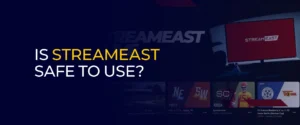
The Smoothstack Lawsuit: A Deep Dive into the Controversy
The tech industry is now considered to be the industry of growth and innovation. Was recently shaken by a major legal dispute where Smoothstack, a tech training and placement company. This is now manifested in the Smoothstack lawsuit with allegations on labor relations. Contractual dealings, and mistreatment of young, aspiring technologists. The current article analyses the case focusing on the main stakes and legal grounds, and possible consequences for the sector.
Understanding the Core Issues
The basis for the Smoothstack case involves a set of claims related to the Company’s conduct with its workers. Who participate in its training procedures. The primary issues raised by the plaintiffs include:
- Misclassified Internships: One such assumption is that Smoothstack misled interns as independent contractors or trainees so they do not have to pay them minimum wages or overtime wages. On this subject, plaintiffs assert that they exposed themselves to the risk of harm. And what they did was not merely education.
- Predatory Contract Terms: Specifically, the lawsuit accuses Smoothstack of putting its employees under unfair contractual provisions under Clint, and restrictive covenants. Non-compete, and training repayment agreements. These agreements, plaintiffs argue, were entered into for restraint of employees and forcing the employees to pay heavy sums of money for the opportunity to leave the company.
- Wage and Hour Violations: The Plaintiffs state that Smoothstack deliberately discriminated against employees. Did not pay adequate wages for overtime work, and inaccurately calculated the working hours. Also, the cases of working after hours without pay or including one’s time to perform organizational tasks as presented.
- False Promises and Misrepresentation: The allegations made in the suit are that Smoothstack had deceived its customers concerning available job placements. Career growth, and the useful training provided. The plaintiffs claim that they were promised and expected to work for the company on unrealistic terms and conditions.
A Closer Look at the Legal Arguments
The plaintiffs in the Smoothstack lawsuit have advanced several legal arguments to support their claims:
- Fair Labor Standards Act (FLSA) Violations: FLSA regulates matters such as minimum wage. Overtime pay as well as record keeping for most employees in the private sector. Smith and the other plaintiffs claimed that Smoothstack discriminated against interns and denied them decent wages. And in the process violated FLSA.
- State Wage and Hour Laws: Besides federal statutes. Plaintiffs are allowed to pursue relief under local statutes that regulate wage and hour laws usually and allow employees further protection. These laws might be those that differ from one state to another, and the common areas cover wages and hours. Including minimum wage, and overtime. Required rest and meal periods, and wage theft.
- Contract Law Claims: The plaintiffs may pursue claims for breach of the contract terms that were offered by Smoothstack and the parity that the latter relied on in devising and implementing unfair and deceptive contractual provisions that precluded the former from accessing fair contractual provisions. Such allegations may provide an attempt to rescind or alter the contracts as well as get for damages.
- Other Potential Claims: In addition to these legal theories plaintiffs may also sue for wrongful dismissal or retaliation. Or other employment law torts based on the facts of the case.
The Potential Impact of the Smoothstack Lawsuit
Depending on what transpires with Smoothstack suits the future of new tech and indeed employment may shift hugely. Some potential consequences include:
- Increased Regulatory Scrutiny: The case may lead to more regulation of tech company labor issues including the classification of workforces. Wage and hour laws, and restrictive covenants.
- Changes in Internship Programs: The lawsuit may make changes to internship programs in order to better protect interns from unfair treatment and or low or no pay. This could include mandates that will lead to enhanced rules in intern categorization. Ensuring interns receive educationally enriching experience and no exploitative intern situations.
- Enhanced Worker Protections: The case may lead to a reversal of fortunes for workers in the sense that it may lead to better improvement in contractual provisions for employees. Better access to legal redress, and better compliance with labor laws.
- Impact on the Tech Talent Market: This case could potentially influence the impression that various tech companies create about themselves as an industry that is both appealing and contiguous to be a member of. It may help some talent avoid entering the field with a bad actor or dissuade qualified talent from joining a firm with a poor record on labor rights.
Steps to Protect Yourself as a Tech Worker
To protect yourself from potential exploitation and ensure fair treatment in the tech industry, consider the following steps:
- Thoroughly Review Contracts: Read every single line of the contract here involving compensation, benefits, and the scope of responsibilities. And any covenants. Not to compete. If there are issues that cannot be solved by the above-mentioned techniques one should approach the lawyer.
- Track Your Hours Accurately: Recording of working hours: Certain dates in chronological order to include start time and end time. Overtime breakdown. And off-clock work.
- Know Your Rights: It is therefore important to acquaint yourself with some of the labor laws such as the minimum wages. Overtime wages, and workplace other regulations such as health facilities.
- Document Instances of Mistreatment: If you receive any type of abuse, whether in terms of wages, work hours, working conditions, or harassment, make sure to keep records of abuses including the date, time, and if possible, the perpetrator.
- Seek Legal Advice: If you find that your rights have been infringed speak to a lawyer specializing in employment law to advise you on the course of action to take and available remedies.
FAQs: Smoothstack Lawsuit
What is a Smoothstack Lawsuit?
The Smoothstack Lawsuit is a legal proceedings that middle a claim of labor laws violation premise on wages and hours violation, worker misclassification, and false employment representation. A list of alumni employees and interns states they suffered abuse and were underpaid.
What are the main allegations against Smoothstack?
The main allegations against Smoothstack include:
- Misclassifying Interns: Plaintiffs claim that they were misclassified as interns, despite performing work that was integral to the company’s operations.
- Misclassifying Interns: The plaintiffs argue that they were mischievously classified as interns, though they were performing core organizational tasks.
- Wage and Hour Violations: Plaintiffs state that they never received an hourly wage required under law, or even overtime wages, and were compelled to work beyond reasonable shift hours without being paid anything.
- False Promises of Job Placement: The plaintiffs alleged that Smoothstack misled candidates into signing on for such training and made false statements about the availability of jobs for the trainees.
What would happen to future internships if this lawsuit were pursued?
The Smoothstack case may bring more attention to internship practices and prompt states to adopt legislation that will protect interns from totally unfair treatment and unpaid wages. It may lead to the emergence of new detailed rules for intern categorization, enriched educational activities that do not involve the unjust exploitation of interns, etc.
How can the intern avoid outrageous treatment by employers?
Interns can protect their rights by:
- Thoroughly reviewing internship agreements: Read every single contingency that is within a contract like pay structure, employee’s perks, responsibilities, and clauses.
- Tracking work hours accurately: Receive, record, and keep proper records of working hours of work including working hours, overtime, and sum of off time.
- Knowing their rights: Why employers should also civilize themselves with key provisions in labor laws such as minimum wage, overtime pay, and workplace safety.
- Documenting instances of mistreatment: In case of abuse, the survivor should document them at the time of the incident, or the best time possible including the date, time, and any name that might be relevant.
- Seeking legal advice: If the employee feels that his/her rights have been violated, then he/she should seek employment attorney advice concerning the likely recourse.
What might the consequence of the lawsuit be for the technological sector?
The lawsuit could have a significant impact on the tech industry, including:
- Increased regulatory scrutiny: This is likely preparation for more stringent labor law,. Including issues related to workers’ classification, wage and hour Regulations, and restrictive covenants.
- Changes in internship programs: Amendments to the internship policy with a view of providing fair treatment and remuneration to interns.
- Enhanced worker protections: Expanding workers’ rights, for example, improvements in contract disclosure,. Additional legal clauses, and overall improved enforcement of labor laws.
- Impact on the tech talent market:. Concerning negative side effects on the potential reputation of the industry as an attractive and ethical employer.
Has there been a resolution to the Smoothstack lawsuit?
To date, no information on the outcome of this lawsuit has been announced by the Smoothstack. The actual case is still open, and thus, the results are still unknown.
I want to know more about the Smoothstack lawsuit where can I get more information about it?
To get additional information about the Smoothstack lawsuit. You can use search engine systems like news, legal databases, and social networks. However, seeking an employment attorney’s advice is also good for more specific facts and advice on the employee’s rights.
Conclusion
The Smoothstack lawsuit serves as a stark reminder of the challenges faced by workers in the tech industry. When people claim to be the victims and seek justice, they must have the necessary knowledge of the primary problems, legal cases, and possible consequences of the case under discussion. In this developing tech industry, the importance of ethical labor, Fairness, and Corporate Humanity must not be forgotten.



Average Rating